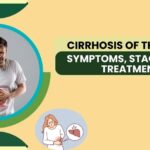Understanding Pain in Parkinson’s Disease: A Comprehensive Guide
Living with Parkinson’s disease and experiencing severe pain? Well, you would be surprised to know that you’re not alone. Did You Know? People struggling with Parkinson’s disease suffer from chronic pain twice as often as people who don’t have it. Instead, more than eighty percent of people with Parkinson’s have been found to complain of chronic pain and consider it one of their most disturbing non-motor symptoms. There is no one-size-fits-all approach to treating the pain. Patients need to work in collaboration with their healthcare personnel to understand the real cause behind their condition and find the best-suited treatment according to their individual condition.
Pain in Parkinson’s Disease
Pain among Parkinson’s patients is increasingly gaining attention as the most common non-motor symptom. During the early stage of Parkinson’s, the body diagnoses and detects several kinds of pain. The prevalence ranges from 24% to 85%, depending on the type of pain and its severity. Mostly, the pain experienced is from a moderate to severe form. Also, it is important to note here that the patients complaining of pain symptoms are more prone to depression and a decreased quality of life.
Understanding Parkinson’s?
Parkinson’s disease is a progressive neurological condition, resulting from a lack of dopamine in the brain. This neurological disorder affects physical movement and stability, causing symptoms such as tremors, muscle stiffness, and difficulty walking. Understanding the effective parkinson’s disease treatment, particularly homeopathic options, is crucial for alleviating the pain linked to this condition.
In the early stage of PD, as many as 40% of the patients experience primary symptoms before motor symptoms have become prominent. The side of the body experiencing the motor symptoms first is affected by the pain. For example, if PD has begun with a tremor in the right hand, the right shoulder, wrist, or fingers are more likely to experience the pain.
Common Types Of Parkinson’s Pain
Based on the frequency, characteristics, and severity, the nature of parkinson’s pain is evaluated. It could be aching, dull, radiating, penetrating, shooting, throbbing, burning, or stabbing. The McGill Pain Questionnaire, King’s PD Pain Scale, and the visual analogue scale are a few of the several tools utilised to investigate the pain in PD. The easiest to administer is the King’s PD scale. It includes considering questions related to seven domains, including musculoskeletal pain, chronic neuropathic pain, motor fluctuation-related pain, nocturnal pain (such as pain related to restless legs syndrome), orofacial pain, limb edema/swelling-related pain, and radicular pain.
Below-mentioned are a few common types of pain experienced by parkinson disease patients.
Musculoskeletal pain
Musculoskeletal pain in parkinson’s disease encompasses discomfort in the muscles, bones, or skeletal system and is experienced by up to 75% of people struggling with PD. Rigidity, decreased movement, and arthritis are some of the commonly experienced symptoms. Several others may also encounter muscle cramps along with the tightness in the neck, spine, and arms. Pain and stiffness in the muscles, as well as joint pain in parkinson’s disease, especially in one shoulder, are also quite common.
Dystonic pain
Experiencing a painful curling of your foot, toes, or hands? It could be Dystonia, a painful muscle spasm! Half of the PD patients suffer from this kind of pain at some stage of the disease. The symptoms usually begin to develop in one body region, such as the neck, face, vocal cords, arm, or leg, and gradually spread to other parts of the body with varying severity. The condition may develop spontaneously, and sometimes may also be triggered by certain movements. Several genetic and environmental factors play a significant role in causing dystonia. Foot dystonia has been found to be a major contributing factor to pain in PD patients.
Neuropathic pain
Also called radicular pain, neuropathic pain affects approximately 5-30% of people struggling with Parkinson’s disease. The primary cause of this type of pain is damaged or compressed nerves resulting from changes in posture and involuntary muscular contractions. The pain feels like a sharp, electric, tingling, burning, or numbness. People struggling with neuropathic pain in parkinson’s disease may also experience peripheral neuropathy, referred to as an injury to nerve endings that may also show up as numbness in the toes or fingertips. In some cases, nutritional deficiencies have also been found to be playing a significant role in the development of this condition.
Central pain
What is central pain in parkinson’s disease? Well, among the several types of pain experienced by Parkinson’s patients, central pain is the most severe one. The symptoms may include abdominal pain, a vague, constant, burning sensation, reflux, and shortness of breath, painful sensations around the mouth, genitals, or rectal areas, or sometimes the pain is experienced all over. Central pain affects approximately ten percent of people at some point. The causative factor behind the development of this pain is believed to be the neurodegenerative effects of PD.
Homeopathic Parkinson’s Natural Treatment
If you are searching for the top parkinson disease treatment in India, consider Bharat Homeopathy. We are a highly recognized hospital in Gurgaon that offers natural treatment for Parkinson’s disease. Our experienced homeopathic doctors specializing in Parkinson’s have successfully treated many patients around the globe. They adopt a patient-centered, natural methodology, guaranteeing that each individual gets a tailored treatment plan based on their specific symptoms and overall health.
Bharat Homeopathy Hospital, Gurugram, offers complete assessment and management for every type of parkinson’s disease. Backed by a team of renowned parkinson’s disease specialists who have vast experience in diagnosis, treatment, and care coordination, we are qualified to treat the most challenging of parkinson’s conditions.
Celebrating over 20+ years of experience, we have been the leader in the field and the largest and most comprehensive homeopathic hospital in the country. Our neurologists are constantly pushing the limits and seeking natural homeopathic medicine for parkinson disease, side-effect-free methods to improve diagnosis and therapies for patients with parkinson’s disease through their research and collaborating with patients worldwide.


